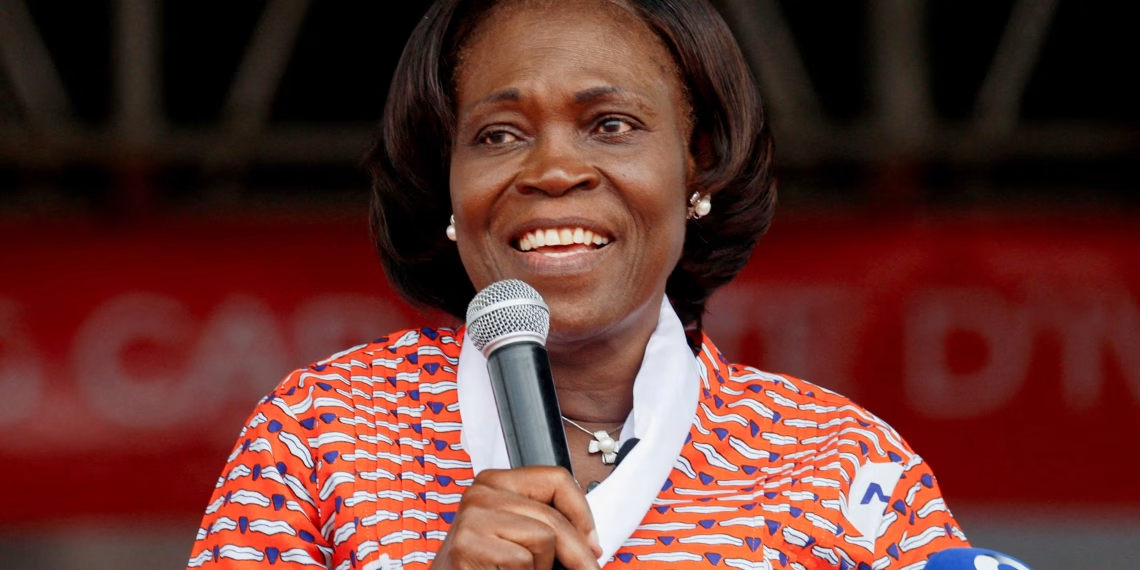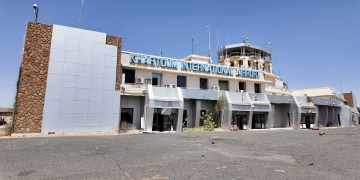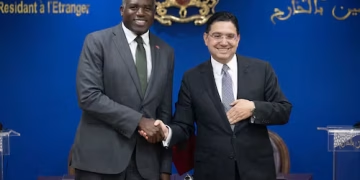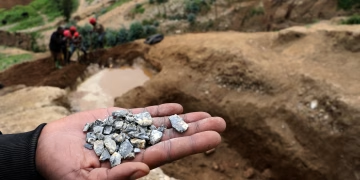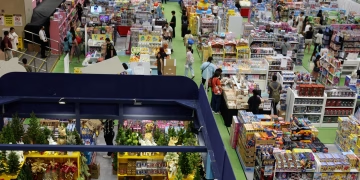A New Chapter for a Familiar Figure
In Yopougon, a bustling suburb of Abidjan, hundreds of women gathered under the blazing October sun. They were dressed in the purple and white colours of the Mouvement des Générations Capables (MGC). The event, held on October 22, 2025, was a rally led by former First Lady Simone Ehivet Gbagbo, now 76.
Gbagbo officially announced her presidential bid under the MGC banner. She described her campaign as a landmark for women’s leadership and a call for national reconciliation. The move marked her full return to Côte d’Ivoire’s political scene.
Rallying the Women
The Yopougon rally was part of a larger effort to mobilise women — a vital voting bloc. Supporters filled the streets, waving flags and chanting slogans of hope. The energy was electric.
One organiser explained, “Her meetings across the country have generated real enthusiasm. Everywhere she goes, her message is heard with respect.”
Odette Tiémélé, the MGC’s national coordinator for women, told the crowd, “We are not just here to show support. We are here to win. Ivorians want peaceful change, and that change is Simone Ehivet Gbagbo.”
In her speech, Gbagbo was confident and determined. She said she was not joining the race to play a symbolic role. Her goal was to force the incumbent into a second round — and to become Côte d’Ivoire’s first female president.
Background and Political Stakes
Simone Gbagbo is no newcomer to politics. As the wife of former President Laurent Gbagbo, she served as First Lady during one of the country’s most turbulent periods. Her husband’s presidency ended in the 2010–2011 post-election crisis, which claimed thousands of lives and plunged the country into civil conflict.
After the conflict, Simone was arrested and later convicted of undermining state security. She served several years in prison before receiving a presidential amnesty in 2018. Her release reignited public debate about her political future.
Today, she stands as one of the few major opposition figures allowed to contest the 2025 election. With many rivals disqualified, her candidacy has become both significant and controversial.
The Campaign Message
At her rally, Gbagbo focused on women’s empowerment, social justice, and national unity. She promised to restore dignity to communities still recovering from political division.
She also spoke about shifting mindsets. “The idea of a female president is not shocking anymore,” she told reporters. “It is time for women to take responsibility and lead.”
Her campaign uses strong symbolism. Supporters see her as a fighter who has endured persecution and still stands firm. From the rally stage, chants of “Simone for Change” echoed through the crowd.
One supporter declared, “We know what Doctor Simone Ehivet Gbagbo can do. We are here to win with her.”
The Election Context
The political environment in Côte d’Ivoire remains tense. President Alassane Ouattara is seeking a fourth term, raising concerns about democratic fatigue and political stability.
Earlier this year, protests erupted after several prominent candidates were barred from running. These events have fuelled debates about fairness and inclusivity in the upcoming election.
Against this backdrop, Gbagbo’s campaign is under close observation. Her past and her message of reconciliation both define her and divide opinions. Supporters view her as a symbol of resistance. Critics, however, question her ability to move the country beyond its political scars.
Why Her Women-Focused Strategy Matters
Mobilising a key demographic:
Women make up a large share of Côte d’Ivoire’s population and voter base. Yet, they are often sidelined in politics. Gbagbo’s approach places women at the centre of her movement, aiming to convert gender solidarity into electoral power.
A symbolic breakthrough:
If she wins, Gbagbo would become the country’s first female president. Her candidacy sends a powerful message about inclusion and transformation.
A message of renewal:
Gbagbo’s campaign appeals to both women and youth. She seeks to show that she is not a remnant of past politics, but a reformer ready for a new generation.
A calculated strategy:
With many seasoned opposition figures excluded, Gbagbo’s broad mobilisation of women could give her a unique advantage. Grassroots networks led by women might shape turnout in critical regions.
Challenges and Headwinds
Despite her momentum, Simone Gbagbo faces steep challenges.
A controversial past:
Her role during the 2010–2011 crisis remains a major concern. Many Ivorians still associate her with that dark period. Analysts warn that this perception could hinder her ability to attract undecided voters.
A divided opposition:
The opposition landscape is fragmented. Without strong alliances, her campaign risks isolation in a system dominated by established power networks.
Structural barriers:
Transforming female enthusiasm into actual votes requires vast resources, efficient logistics, and institutional trust — all of which remain difficult in the current environment.
Concerns over fairness:
Côte d’Ivoire’s electoral system has faced criticism for lacking transparency. Questions about media access, impartiality, and rule enforcement persist.
The credibility dilemma:
While Gbagbo’s message of social welfare and empowerment resonates, winning the presidency requires broader appeal across ethnic, regional, and class divides. Building that trust is her greatest challenge.
What to Watch in the Coming Weeks
Observers are monitoring several developments:
- Women’s participation: Will Gbagbo’s outreach translate into record female voter turnout?
- Campaign momentum: Can she broaden her message to include men, youth, and rural voters?
- Public perception: Will Ivorians focus more on her vision than her controversial history?
- Electoral integrity: How will her team respond if the process is contested?
- Alliances: Can she unite opposition parties behind her candidacy to increase her chances?
Broader Implications
Gbagbo’s campaign represents more than a single political bid. It highlights the evolving nature of Ivorian politics — where gender, legacy, and reform are becoming central themes.
Her women-focused movement could redefine how future campaigns approach inclusion and mobilisation. If successful, it may inspire similar strategies across West Africa, where women remain underrepresented in leadership.
It also signals a deeper societal shift. After decades of male dominance, the possibility of a female head of state offers new hope to many Ivorians, especially younger women eager to see representation in power.
Final Thoughts
Simone Gbagbo’s rally in Yopougon was more than a political gathering; it was a declaration of intent. It symbolised a fusion of personal redemption and collective ambition.
Her journey from prison to presidential candidate reflects both resilience and transformation. For her supporters, she embodies the struggle for equality and justice. For her critics, she remains a reminder of past turmoil.
Regardless of the outcome, her presence has already altered the tone of the 2025 election. It has placed gender and reconciliation at the heart of national debate.
If she wins, it would mark a turning point in Côte d’Ivoire’s history. Even if she does not, her campaign has already broadened the conversation — reminding Ivorians that political renewal can also come through forgiveness, inclusion, and courage.
Simone Ehivet Gbagbo’s rise once again captures the nation’s attention. Whether she becomes the country’s first female president or not, her movement is reshaping what leadership in Côte d’Ivoire looks like — one rally, one woman, and one message at a time.


